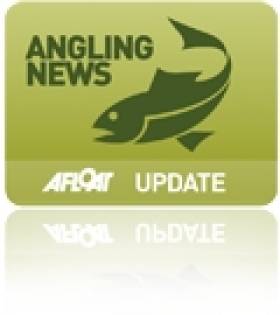Displaying items by tag: Upper Suck
New Angling Guide for Lough O'Flynn and Upper Suck
#INLAND WATERWAYS - Inland Fisheries Ireland (IFI) officially launched the Lough O’Flynn and Upper Suck Angling Guide at the Old Stonehouse Restaurant in Ballinlough recently.
The guide opens to Lough O'Flynn, a 300-acre limestone lake situated 2km from Ballinlough and one of IFI’s many managed lakes requiring a permit.
This lake holds a stock of wild brown trout and is also stocked with brown trout each year which provides an excellent opportunity for all kinds of anglers and those wishing to take up the sport to learn how to fish for trout.
Meanwhile, the centrefold of the guide showcases the Upper Suck catchment from Lough O’Flynn through Co Roscommon and Galway until the Shiven tributary joins, along which good quality coarse, pike and trout angling can be expected.
With breathtaking scenery, this is the perfect place for anglers who can fish almost undisturbed from dawn till dusk.
There are also a considerable number of sections dedicated to anglers with disabilities, such as the Donamon angling stretch which has 30 fishing stands available with individual car parking bays and toilet facilities. This section has proven extremely popular, and IFI says it is committed to ensuring that sections like Donamon continue to open fishing up for everyone.
Amanda Mooney, director at IFI, said: “The guide offers a great source of information on angling hotspots for various types of species, access points and facilities, legislation and safety.
"All in all everything you need for planning a fishing trip. The guide and angling promotion in general supports local businesses and communities in sustaining jobs.”
The Lough O’Flynn and Upper Suck Angling Guide is available from IFI outlets and local permit agents in Ballinlough, Co Roscommon.
Inland Fisheries Ireland also marked the retirement of John Ryan, assistant inspector for Lough O’Flynn and the Suck catchment, after 41 years of service.
Ryan was involved in many areas and aspects of fisheries throughout his career, and was particularly noted for his positive engagement with various groups from angling clubs and development associations to local authorities, businesses and communities.
























































